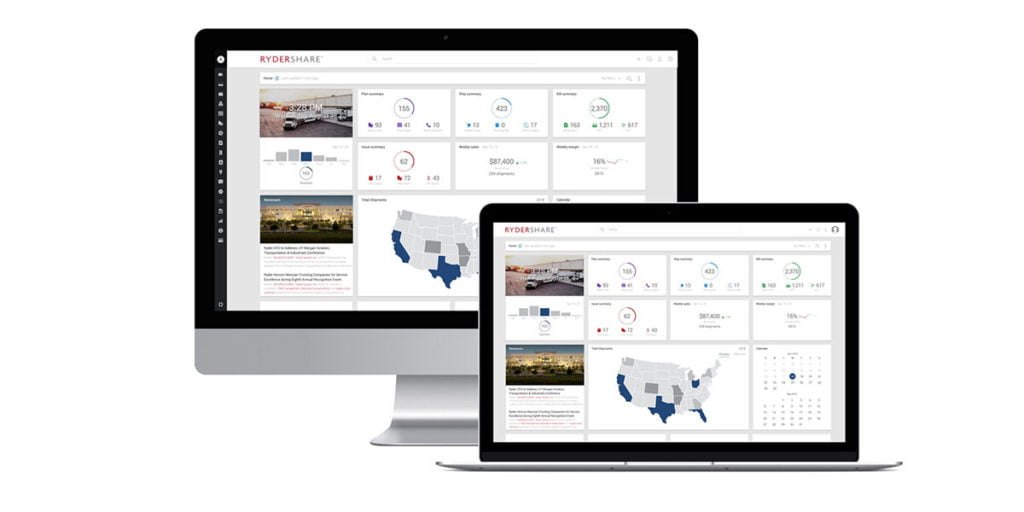In the swiftly changing landscape of the logistics industry, the role of freight brokers is becoming increasingly pivotal. Acting as the crucial linchpin connecting shippers and carriers, freight brokers have the onus of ensuring seamless logistics operations. The complexity and volume of their tasks necessitate a robust, technologically advanced system. In today’s context, a high-performance freight broker system is a non-negotiable tool for any forward-thinking freight broker.
As a leading provider of cloud-based transportation management solutions, Turvo understands the intricacies of a freight broker’s role and the importance of an effective freight broker system. In this article, we delve deeper into the essential features that every comprehensive freight broker system should possess from Turvo’s standpoint.
Real-Time Visibility and Tracking
In the logistics business, time is often tantamount to money. The ability to track shipments in real-time is an indispensable feature of a freight broker system. This feature affords transparency, enabling freight brokers to monitor the movement of goods, predict potential delays, and implement necessary contingencies. Additionally, GPS tracking capabilities empower brokers, shippers, and carriers to keep an eye on their freight at all times, enhancing security and bolstering customer trust.
Centralized and Collaborative Platform
A freight broker system must act as a centralized, collaborative platform that consolidates communication and data sharing among all stakeholders. This single, shared workspace eliminates the often chaotic back-and-forth emails, calls, and spreadsheets, fostering seamless interaction and improved data accuracy. Turvo’s system underscores this philosophy by providing an integrated platform for all stakeholders, resulting in enhanced operational efficiency and smoother, faster transactions.
Automated Workflow
Automation is a vital feature in a robust freight broker system. It helps to eliminate repetitive tasks, reduce the chances of human error, and streamline the entire freight brokerage process. For instance, features like automated load matching can suggest optimal carriers for each load based on specific parameters such as location, equipment, and capacity. Similarly, automated invoicing and documentation can expedite the billing process, improve cash flow, and reduce administrative burden.
Comprehensive Reporting and Analytics
In the era of big data, the ability to leverage data analytics is crucial for a freight broker system. An effective system should provide comprehensive reporting tools and predictive analytics that generate actionable insights. These insights can help brokers identify operational inefficiencies, understand customer behaviors, and track market trends. At Turvo, we leverage artificial intelligence to deliver predictive insights, allowing businesses to anticipate market demands and adjust their strategies for optimal results.
Scalability and Integration
Scalability is an often overlooked, yet crucial feature in a freight broker system. As a business expands, the freight broker system should be capable of accommodating growth, handling an increasing volume of loads without compromising on performance. Equally important is the system’s ability to integrate seamlessly with other enterprise software like ERP and CRM systems. This capability enhances interoperability, improving data sharing and connectivity between different business operations.
Customer Relationship Management (CRM)
A key feature that every freight broker system should have is a Customer Relationship Management (CRM) module. Given the highly competitive nature of the freight industry, maintaining strong relationships with shippers and carriers can provide a strategic edge. The CRM feature should allow freight brokers to manage contacts, track interactions, and analyze relationship history. It should support lead management and assist in identifying and tracking potential clients.
Moreover, an effective CRM module could help enhance customer service by providing complete visibility into customer interactions, helping brokers deliver personalized service and effectively address customer issues. Furthermore, it could also offer critical insights into customer behavior and preferences, thereby allowing brokers to make data-driven decisions and build long-lasting, profitable relationships. Turvo’s freight broker system includes an integrated CRM feature designed to improve customer retention and satisfaction while providing brokers with valuable insights to drive their business forward.
User-Friendly Interface
Lastly, the importance of a user-friendly interface in a freight broker system cannot be overstated. An intuitive, easy-to-navigate interface can significantly enhance the user experience, reduce training time, and increase productivity. Complex systems can lead to confusion, inefficiency, and errors. Hence, the interface must be simple yet powerful, such as the one offered by Turvo, which has been designed with a keen understanding of the end-user’s needs.
In conclusion, a freight broker system that possesses the aforementioned features can be a game-changer for any freight brokerage business. It should provide real-time visibility, promote collaboration, automate workflows, offer comprehensive analytics, ensure scalability, manage compliance, and have an easy-to-use interface. These features serve as the cornerstones of Turvo’s freight broker system, enabling us to deliver top-tier, cloud-based transportation management solutions that drive efficiency and effectiveness in the logistics sector.









